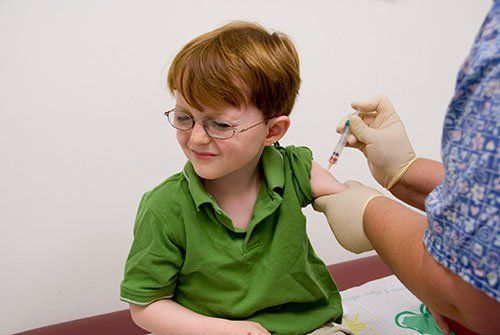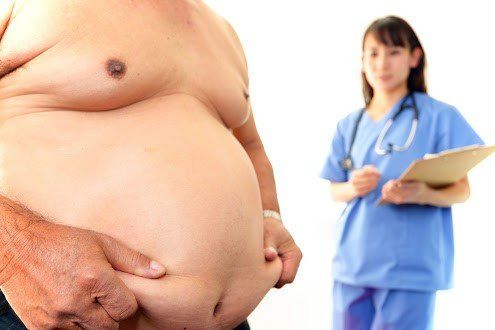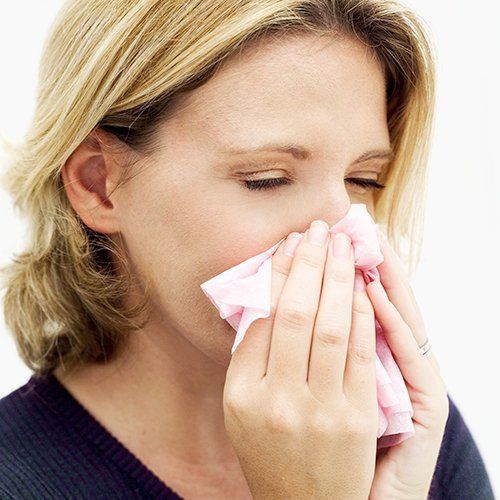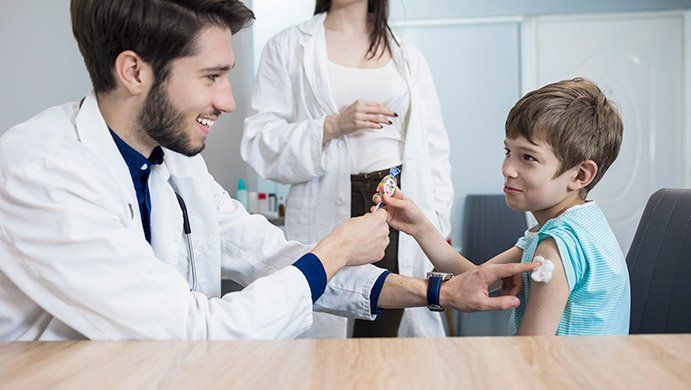The Effects of Low Testosterone on Your Health
Admin • March 20, 2020
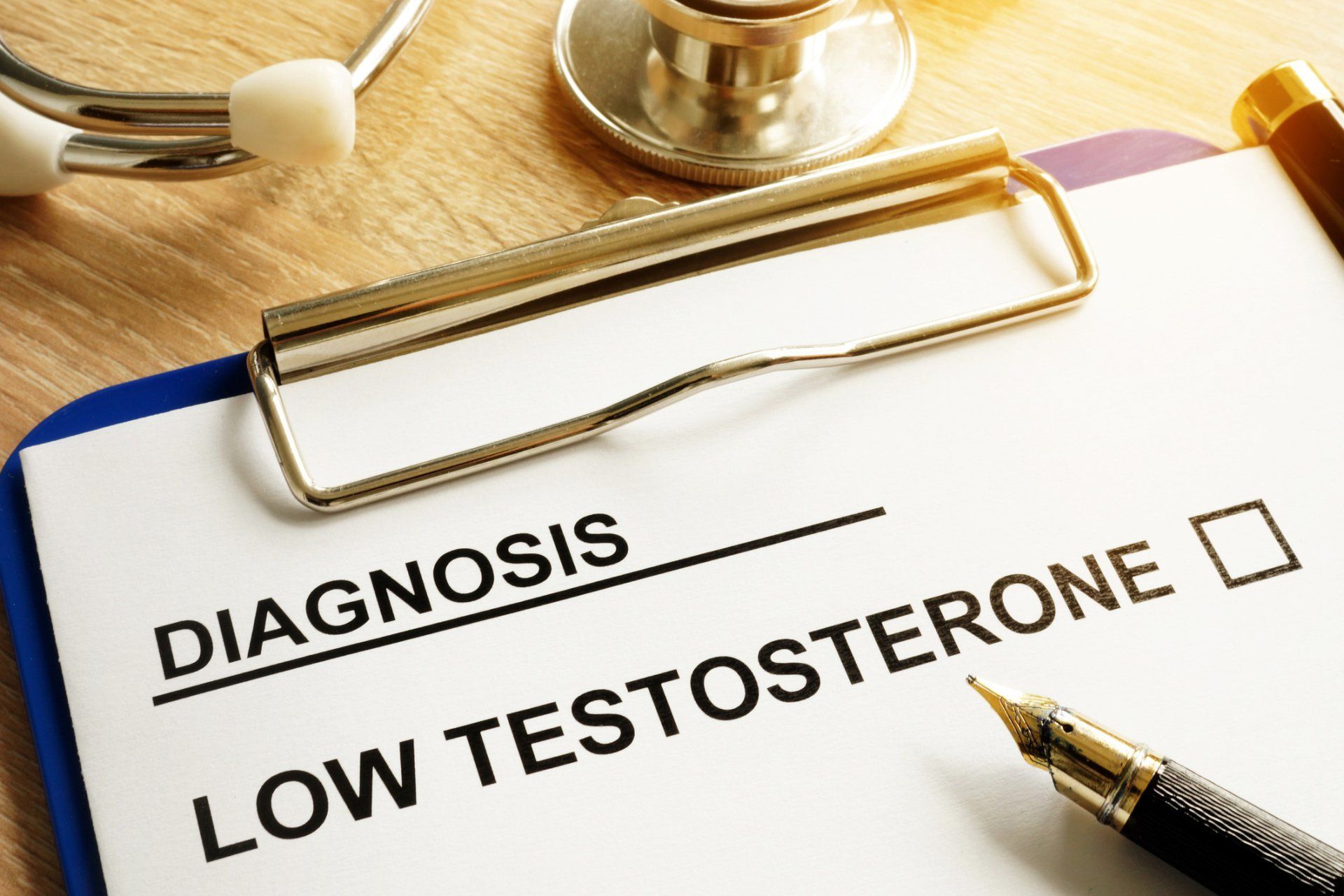
Testosterone is an important male hormone, and if your levels significantly drop, then you could suffer health problems. While some drop in testosterone is normal as you age, you shouldn't suffer serious problems unless it is abnormally low. Here is more information about low testosterone and the health issues that you could have if your levels are too low.
How Are Testosterone Levels Checked?
Your doctor will start with a questionnaire and physical exam, first. Then the hormone levels in your blood are checked. If you have low testosterone levels, then you may also go through additional examination and tests to determine the cause. These tests may include pituitary imaging and semen analysis (especially if you are also trying to plan for a family).
What Causes Low Testosterone?
In addition to age-related issues, several conditions contribute to low testosterone levels. In some cases, your hormone levels may improve once these conditions are treated. Examples of health problems that affect testosterone levels include:
- Diabetes
- Alcohol abuse
- Testicular injuries
- Obesity
- Sudden and drastic weight loss
- Excess estrogen
Low testosterone levels can also be inherited or caused by prenatal problems.
How Does Low Testosterone Cause Health Issues?
Testosterone is a vital hormone, especially for men. If it's low, you will notice significant health effects. Here are some examples of the medical problems low testosterone may contribute to.
Fertility Problems
Low testosterone affects your sperm count and vitality. If you and your partner are trying to get pregnant, and you have difficulties, then have your hormones checked.
Fatigue
Testosterone gives your body an energy boost, so when it is low, you may feel tired and weak. You may also have sleep troubles and this can contribute to fatigue.
Low Muscle Mass
Testosterone plays a major role in both men and women's development of muscle mass. Lower levels of testosterone mean that you will not be able to gain much muscle no matter how much you work out.
Weight Gain
Testosterone affects where fat is distributed and how much of it you have. Low muscle mass can contribute to increased fat, as this is also a major factor in metabolism.
Reduced Number of Red Blood Cells
Studies show that testosterone affects iron metabolism and stimulates the growth in the number of red blood cells. In one such study, the majority of men given testosterone showed an increase in red blood cells versus those who only got a placebo.
Increased Breast Tissue
When your testosterone levels are low, it causes am imbalance with estrogen and other hormones. When this happens, you may experience an increase in breast tissue.
Can Low Testosterone Affect Personal Relationships?
Low testosterone also has emotional and sexual implications that may affect your relationships. For example, you may become more moody and quick to anger. This may come across as aggression to your partner or family. You will not feel well and could become depressed more easily. You may also have a decreased sex drive, which could put a strain between you and your partner.
How Is Low Testosterone Treated?
Low testosterone levels are treated with more testosterone. The most common way this hormone is administered is via the skin through gels and patches. You can also get testosterone injections for shortterm relief.
For long-term testosterone treatment, you may also want to consider pellets placed under your skin. These pellets get replaced every two months. While you receive hormone treatment, you must meet with your doctor regularly and undergo regular prostate examinations.
If you feel like your testosterone levels are the cause of some of your health or relational problems, then have your hormones tested. The staff at Hampstead Medical Center PC
can check your hormone levels and give you the appropriate treatment to improve your health. Call us for a convenient appointment.

The IUD, or intrauterine device, is one of the most effective methods of birth control available. Unlike birth-control pills, you do not need to remember daily to administer medication, and the device itself lasts longer than shots and is easier to use than rings. Many women find all of these benefits desirable for a birth-control method. There are two general types of IUDs available to women. The first type is the copper IUD, and the other is hormonal. Which one is right for your personal birth-control needs?
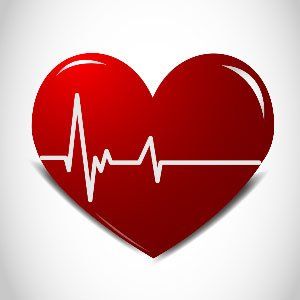
Although the risk of cardiovascular disease increases as you get older, many people who die suddenly of a heart attack didn't previously know they had heart disease. That's why identifying risk factors for heart attack and stroke is so critical to cardiovascular health. Fortunately, with regular exams and the many types of screening tests available, doctors can detect early signs of heart disease.
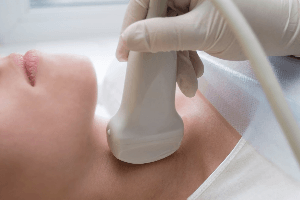
Even if you've never had cause to doubt your thyroid function, if you're a female who has recently given birth, you may be at risk for thyroid issues. An estimated 12 percent of Americans deal with thyroid trouble at some point during their adult lives, and women are significantly more likely than men to develop a thyroid-related ailment. Unfortunately for new mothers, many of the most common signs of an underactive thyroid (like weight gain, mood swings, fatigue, and irritability) are also quite common for those dealing with a newborn's frequent night wakings and the realities of a post-partum body. Read on to learn more about some common (and not-so-common) signs that you could be dealing with a pregnancy-induced thyroid problem as well as some treatment options that can be safely administered or performed while you're breastfeeding. What Can Cause Thyroid Problems During Pregnancy? As with many other hormonal disorders, there are often more questions than answers when it comes to thyroid function. However, researchers have pinpointed a few factors and health conditions that can raise the risk of a woman’s developing a thyroid issue during or immediately after pregnancy. For example, while only around 7 percent of women are at a general risk of developing postpartum thyroiditis, this risk increases to 25 percent for women who have Type 1 diabetes or who dealt with elevated antithyroid antibodies during pregnancy. Women whose anti-peroxidase (anti-TPO) antibodies were elevated during pregnancy may have a 1 in 2 chance of developing postpartum thyroiditis, and those who have dealt with thyroid issues in the past (or during previous pregnancies) also deal with a significantly increased risk. In other cases, thyroid problems may have no cause that can easily be pinpointed; the rush of various hormones during pregnancy and the strain they can put on various systems, including the endocrine system, can create a sort of "perfect storm" in which thyroid problems may thrive. What Are Some Signs You're Dealing With Post-Pregnancy Thyroid Issues? Thyroid problems can take a number of forms, including hypothyroidism (an underactive thyroid), hyperthyroidism (an overactive thyroid), Graves' disease (an autoimmune condition that causes goiter), or Hashimoto's disease (an autoimmune condition in which the body's immune system attacks healthy thyroid cells, eventually stopping all thyroid function). The signs and symptoms for each thyroid disorder are unique and often at opposite sides of the spectrum. For example, hypothyroid patients often report being cold, having dry skin, sleeping more than normal, or gaining weight without trying while hyperthyroid patients sweat profusely, suffer from insomnia, and can lose a significant amount of weight in a brief period. Postpartum thyroiditis often manifests as either an underactive or overactive thyroid, which usually normalizes itself in a few months. Symptoms lasting longer than that or that appear to be getting worse may necessitate medical intervention. What Treatment Options for an Underactive Thyroid Are Best for New Mothers? Whether you suspect you have postpartum thyroiditis or have been formally diagnosed, you may be worried about how your potential treatment options could impact your ability to breastfeed and what effect (if any) they might have on your child. Fortunately, there are a number of effective options from which to choose. If your postpartum thyroiditis is deemed autoimmune in origin, there is some evidence that taking selenium supplements could help normalize your thyroid function without requiring you to take hormonal medication (which might pass into your milk supply). If your symptoms aren't severe and don't impact your daily life, you may instead opt for watchful waiting, maintaining contact with your doctor and reporting any worsening symptoms but avoiding medication or other treatment for the time being. However, if your doctor recommends supplemental thyroid hormone, this usually means some intervention is necessary to prevent permanent damage to your thyroid and the organs and systems that depend on a steady dose of hormones. Make an appointment with Hampstead Medical Center PC to get started taking care of your health.


